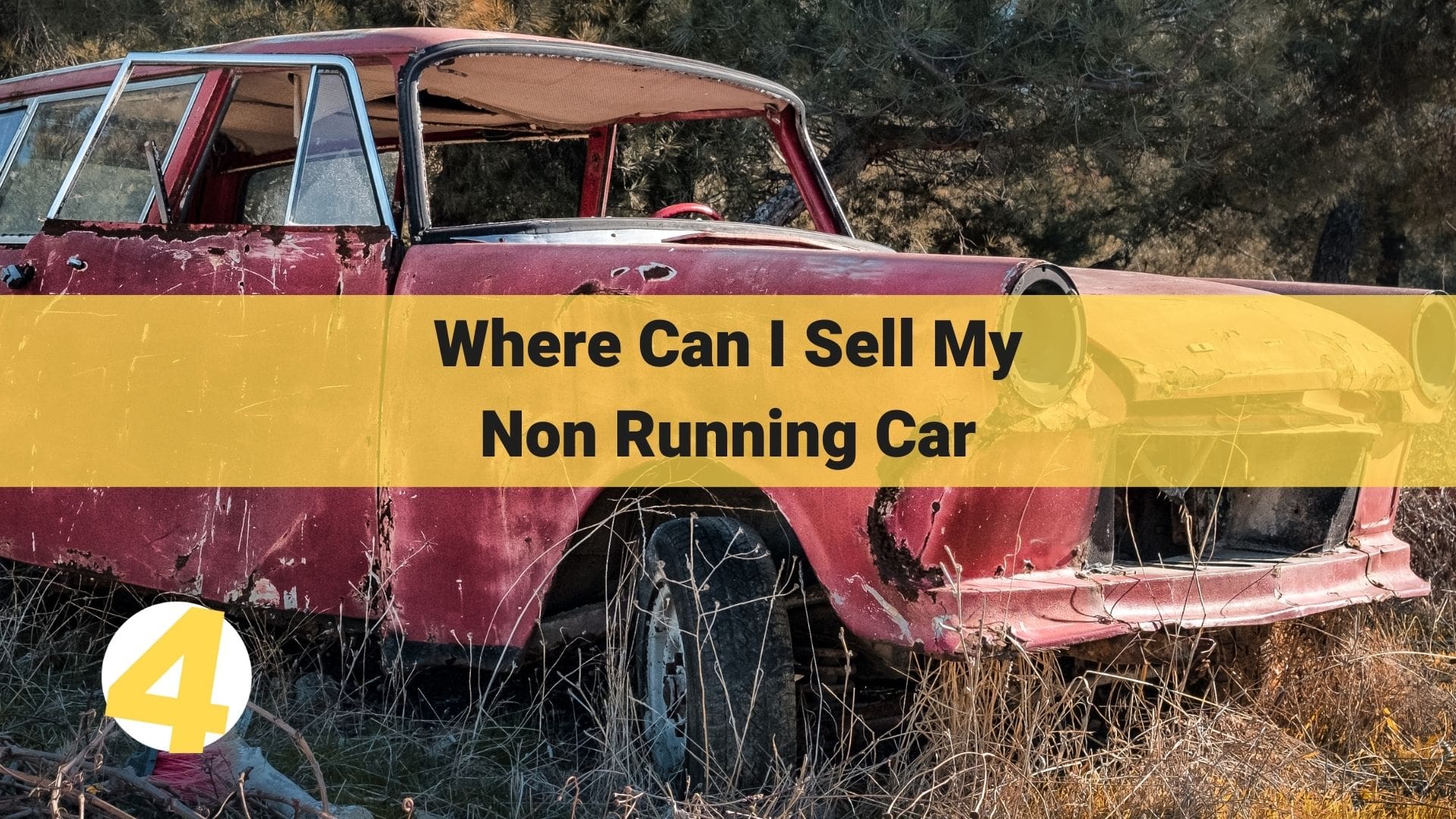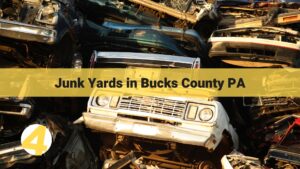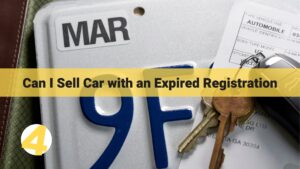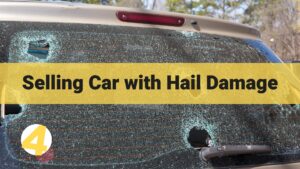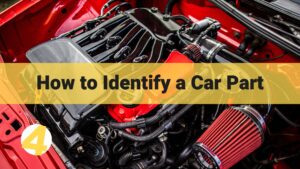You can sell your non-running car through private sales, professional buyers like dealerships and junkyards, or online platforms like eBay and Craigslist. These options cater to different buyer types, offering varying convenience and potential value.
Discover more about “where can I sell my non running car” and each option’s pros and cons to maximize your car’s selling potential.
Selling Options for Non-Running Cars
Here’s a look at your options on where to sell your non-running car:
Private Sales Versus Professional Buyers
Private sales of non-running cars can attract hobbyists or car enthusiasts interested in restoration projects or spare parts. The key to successful private sales is transparency about the car’s condition. However, finding a private buyer may take time.
Professional buyers, like dealerships, might consider non-running cars, especially as trade-ins, if they see potential value in repairs or parts. Though convenient, professional offers might be lower compared to other options.
Junkyards and scrap yards are common professional buyers, often focusing on the vehicle’s salvage value. They offer a quick and easy process but might not provide the highest payout.
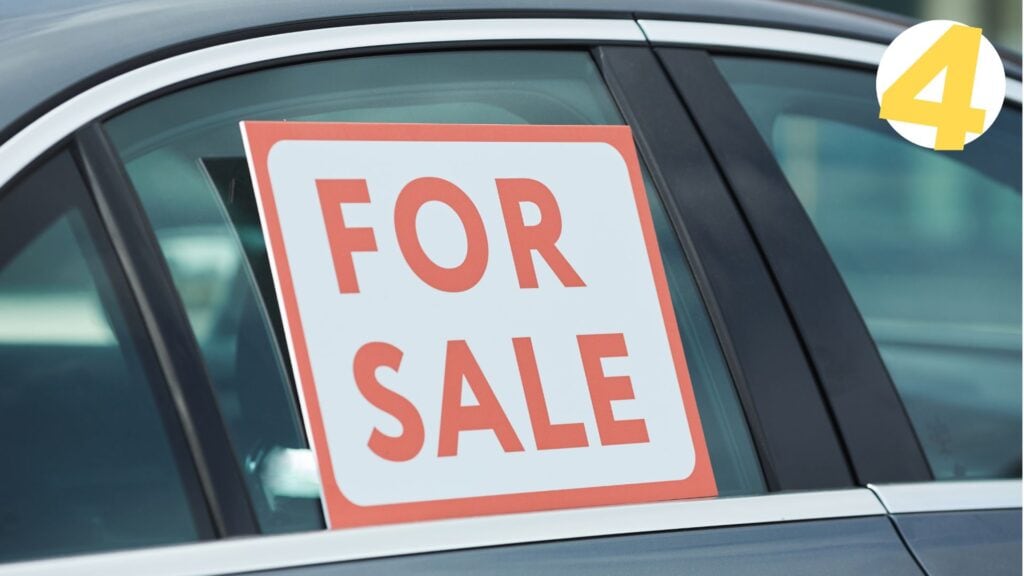
Online Platforms and Marketplaces for Selling
Online platforms and marketplaces have become increasingly popular for selling non-running cars. These platforms often provide a straightforward process where sellers can list their cars, give details about the condition, and receive cash offers. This method can be more lucrative than dealing with dealerships or junkyards.
The best platform varies based on location, car condition, and market demand. Some notable online options include websites specializing in used or damaged cars, enabling a wider reach to potential buyers interested in such vehicles.
Leveraging Local Junkyards and Salvage Yards
Local junkyards and salvage yards offer a viable option for selling non-running cars. These businesses typically purchase cars for their parts or to recycle the metal. They provide a straightforward and quick way to dispose of a non-operational vehicle.
While the payment may primarily be based on the car’s scrap metal value, it’s advisable to get quotes from multiple yards to secure the best offer. This route is particularly suitable for sellers looking for a hassle-free and prompt sale process.
Overview of the Non-Running Car Market
The non-running car market is a unique segment where owners sell vehicles that aren’t in working condition. Despite the challenges, selling a non-runner is definitely possible and might be more lucrative than expected. The market for these cars includes various buyers, from salvage yards and auto recyclers to individual enthusiasts looking for a project car.
When selling a non-running vehicle, it’s crucial to understand the non running car value, which often ranges between 20 to 40 percent of an equivalent running car’s worth. This value depends on factors like the make, model, year, condition, and the market demand for parts.
Challenges in Selling Non-Running Vehicles
Selling a non-running car comes with its own set of challenges. Not all dealerships are interested in buying such vehicles, and those who do may offer significantly lower prices than the car’s actual worth. Online platforms like Facebook Marketplace, eBay, and Craigslist offer a better chance of finding interested buyers.
However, attracting the right buyer requires detailed descriptions and possibly dealing with negotiations or lowball offers. Junkyards and scrapyards are another option, but they usually pay based on the scrap metal value. For those with the necessary skills, selling individual parts can be more profitable, albeit time-consuming and requiring effort in marketing and administration.
Benefits of Selling Non-Running Cars
Despite the challenges, there are benefits to selling non-running cars. It provides an opportunity to convert an otherwise idle asset into cash, which can be useful, especially if the repair costs are too high.
For those looking to buy a new vehicle, trading in a non-runner at a dealership, though potentially at a lower value, offers a convenient way to dispose of the old car. Online buyers and traders specializing in used or damaged cars might offer competitive prices. Consulting with mechanics and repair shops could also uncover interested buyers.
Another option is to donate the car to charity, which won’t bring immediate cash but could offer a tax deduction. Selling to junkyards or scrap yards is a quick way to dispose of the vehicle and still earn something, even if it’s just the scrap value.

Understanding Non Running Car Value
The value of a non-running car is influenced by several key factors:
- The condition of the vehicle is crucial; well-maintained cars have a higher value than those with significant damage or neglect.
- The make and model play a role too, as certain brands or unique models, like classics or limited editions, are more sought after.
- Age is another factor, with newer cars generally worth more unless they’re collectibles.
- Market demand also affects value; higher demand for specific makes and models can increase a car’s worth.
- Location also matters as the value can vary based on regional demand for certain types of cars.
- The availability of parts is crucial too; common models with readily available parts are valued higher than rare models with scarce parts.
- The condition of the engine and other mechanical components is significant, as cars with good engine condition are easier and cheaper to repair and, thus, more valuable.
- The presence and quality of aftermarket parts or accessories can either increase or decrease a car’s value.
Estimating the Value of Non-Running Vehicles
Estimating the value of a non-running vehicle requires considering all the aforementioned factors. It’s vital to have a realistic approach and conduct thorough research. Gathering information on similar vehicles in the area can provide a benchmark for your car’s value.
Online valuation tools can offer a rough estimate, and consulting with professionals like local salvage yards, auto recyclers, or junk car buyers can provide more tailored figures. This comprehensive evaluation helps in setting an informed asking price or negotiating effectively when selling the vehicle.
Importance of Accurate Valuation in Sales Process
Accurate valuation is critical in the sales process of non-running vehicles. It ensures that the seller sets a realistic and competitive price, aligning expectations with the market reality. This approach not only attracts genuine buyers but also helps in avoiding disappointments from unrealistic offers.
For buyers, a fair valuation indicates transparency and honesty, building trust in the transaction. Accurate valuation is also essential for determining whether it’s more financially viable to repair the car or sell it as-is. Overall, it facilitates a smoother and more efficient selling process, benefiting both sellers and buyers.
Preparing Your Non-Running Car for Sale
When selling a non-running car, essential documentation includes the car title and a legal document proving ownership. If the title is lost, apply for a duplicate with ownership proof. A bill of sale is also crucial, outlining the sale details and transfer of ownership. Additionally, a vehicle history report, although not legally required, can inform buyers about the car’s past.
Repair estimates from mechanics can clarify potential repair costs, influencing the sale price. If the car is under warranty, include this information. Proof of registration and insurance is also necessary. In some states, safety inspections or smog checks might be required. If there’s a lien on the car, a lien release is needed.
Cars under 10 years old with less than 16,000 miles require an odometer disclosure statement. In cases where you cannot sign the paperwork in person, a power of attorney is needed. Some states require a release of liability form, transferring ownership and responsibility. Lastly, a disclosure statement outlining known issues or modifications may be required.
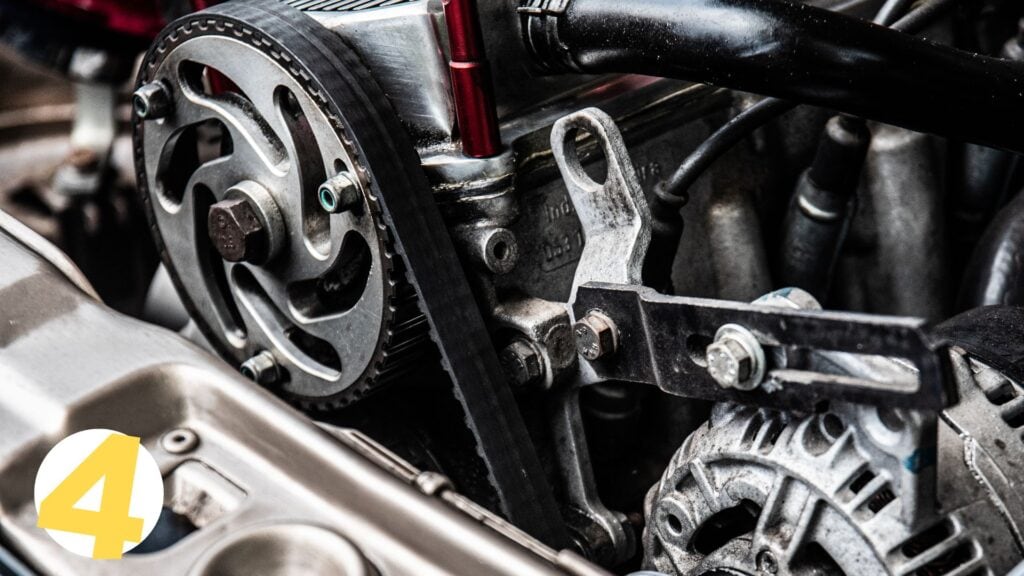
Highlighting Valuable Components and Features
When selling a non-running car, it’s important to highlight any valuable components and features that can attract buyers. This includes mentioning any high-quality aftermarket parts or accessories, the condition of specific parts like the engine, or unique features of the car’s make and model. If the car is a popular model or a classic, emphasize its demand in the market.
Mentioning any recently replaced or well-maintained parts can also add value. Providing information on the availability of parts for the car model can make it more appealing, especially for buyers interested in repairing or restoring it. This approach helps in targeting the right audience and can potentially increase the car’s value in the eyes of prospective buyers.
Tips for a Successful Sale
Successfully marketing a non-running car involves several key strategies:
- Listing the car on online classifieds like Craigslist or eBay can reach a wide audience. Local newspaper ads or online platforms can also be effective. Reaching out to car enthusiasts or collectors through social media or online forums can target specific buyer groups interested in such vehicles.
- Additionally, posting flyers or signs in local auto repair shops or neighborhoods can increase visibility. It’s important to include detailed information about the car, including its make, model, condition, history, and any necessary repairs or restoration work.
- Clear and comprehensive photos from various angles are also crucial to give potential buyers a good sense of the car’s condition.
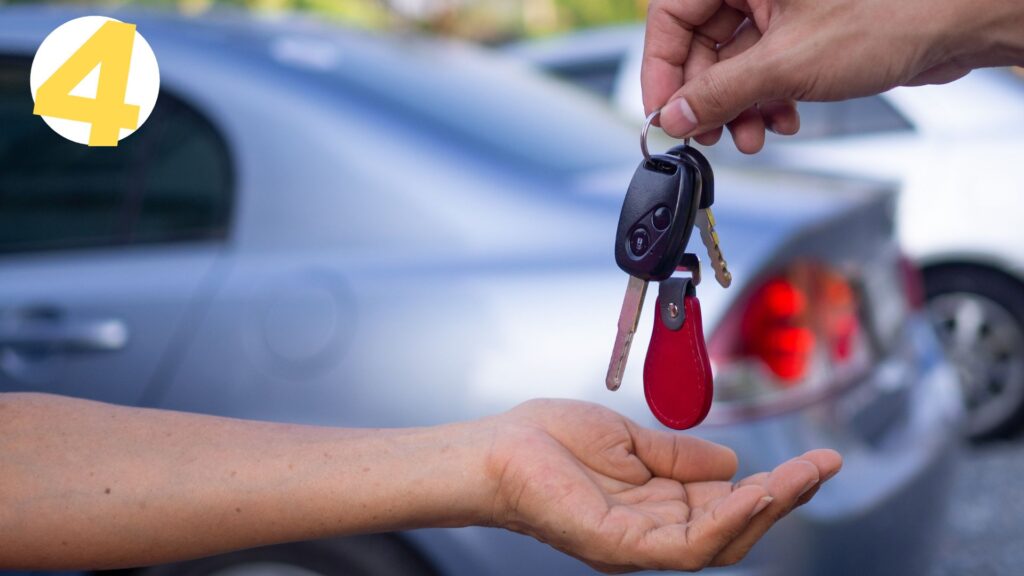
Negotiating with Buyers for the Best Price
Negotiating with potential buyers requires preparedness and honesty. Be ready to answer questions about the car’s condition and the reasons why it won’t start. It’s important to be transparent about any issues with the car and to be willing to negotiate on price.
Setting a realistic price based on research of similar non-running cars in the area can help in establishing a fair starting point for negotiations. Being open to negotiation and understanding the buyer’s perspective can lead to a more successful sale.
Ensuring a Smooth and Hassle-Free Transaction
To ensure a smooth transaction, it’s essential to have all necessary documentation prepared, including the title, registration, and any relevant repair estimates or vehicle history reports. Be clear and upfront about the car’s condition and any issues it may have.
Providing potential buyers with thorough and honest information helps build trust and can prevent any misunderstandings. If finding a private buyer becomes challenging, selling the car to a junk car buyer is a viable alternative. These companies specialize in buying non-running cars and often offer cash payments, although the price might be lower compared to a private sale.
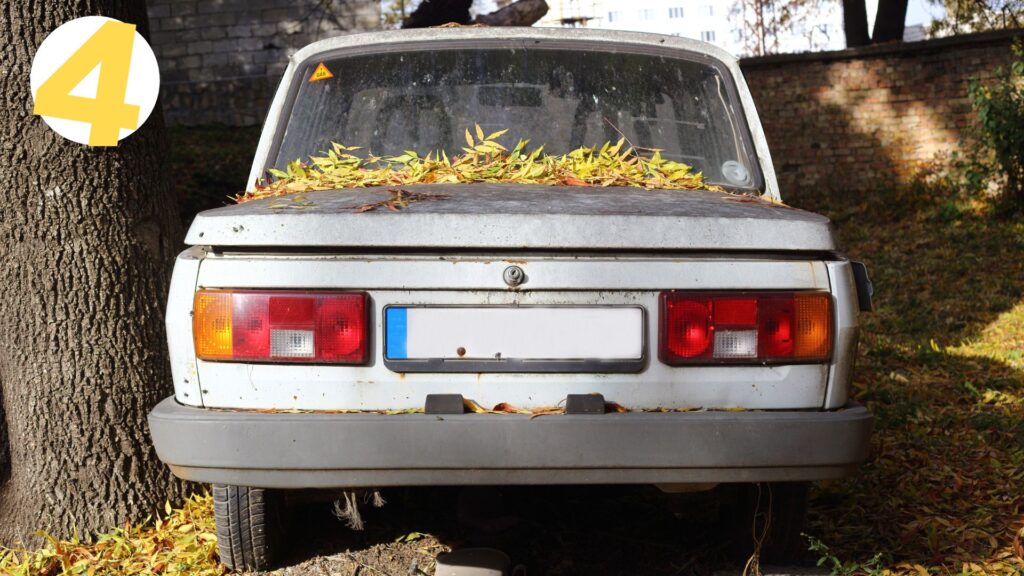
Sell Your Non-Running Cars Hassle-Free at Cash4Cars
If you’re in Philadelphia, and thinking where to sell your non-running car, look no further than Cash4Cars. We offer a streamlined, efficient service tailored to your needs. Our hassle-free approach includes free pickup, removing the burden of transportation logistics.
Our commitment is to ensure a smooth, convenient transaction, characterized by top-tier customer service. With Cash4Cars, experience the ease of selling your car swiftly and effortlessly, right at your doorstep. Call us now for a quick, free quote!

